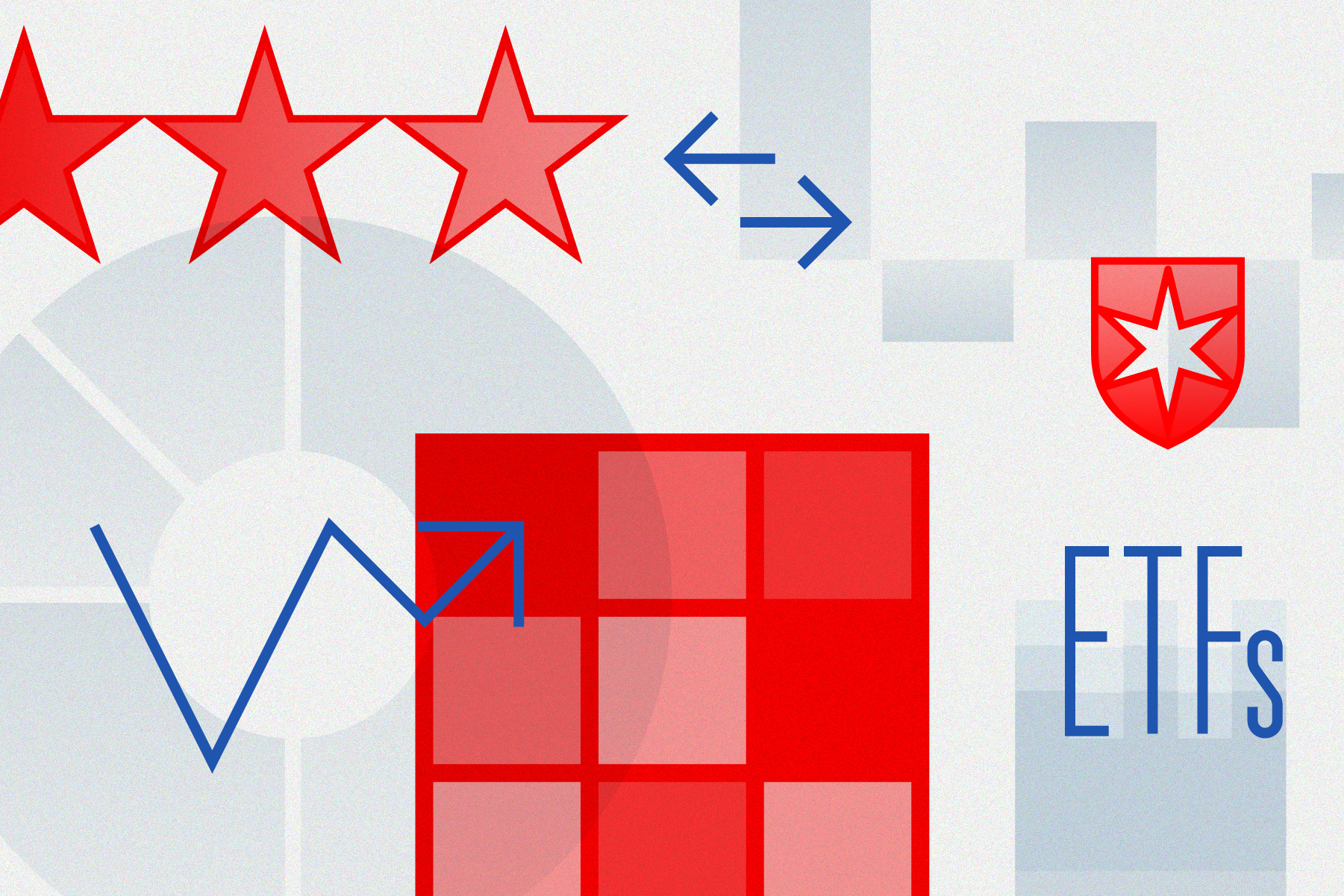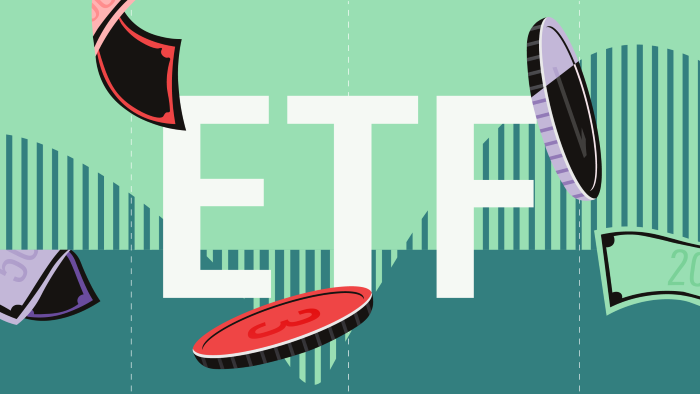Ruth Saldanha: Over 192,000 people follow the Cramer Tracker on Twitter, and the account's job is to track the stock recommendations of CNBC's Jim Cramer. So that their followers can do the exact opposite. If you want to invest in this type of thing, two ETFs were recently launched, both directly related to Jim Cramer's picks. The first fund is called the Inverse Cramer ETF (SJIM), that will invest in the stocks that Cramer says people should avoid. It also goes short on the stocks that Cramer says to invest in essentially betting against these companies. The other is the Long Cramer ETF (LJIM), which does well the exact opposite. So how do these ETFs work, and is this the kind of thing that long term investors should be considering? Ryan Jackson is a manager research analyst for Morningstar Research Services, and he's here today to talk about this.
Ryan, thank you so much for being here today.
Ryan Jackson: Of course, thanks for having me Ruth.
How Do the Cramer ETFs Work?
Saldanha: So how do these fad ETFs work?
Jackson: So, to think about and understand the rise of Inverse Cramer ETF, SJIM and Long Cramer ETF, LJIM, or really any other trendy fad driven strategies. I think it's helpful to kind of think about it from the perspective of the ETF provider. Okay. So most of their revenue comes in the form of fees, which are expressed as a percentage of the total assets that each of their funds is holding. So with that in mind, you know their incentive is at the end of the day to come up with strategies that are going to attract the most investor capital. In recent years, I think one way we've seen some ETF providers really come up with new ideas is to constantly be scouring online message boards, social media, hear what people are talking about in news, to kind of get an idea of what some of the investing styles are that investors really have an appetite for. And if they feel like, you know, there's a good alignment where they've got the resources to bring those strategies to life, they've got the desire to actually do it. You'll see them actually take that final step and create a product that mimics some of that investing strategy.
I think a good example here and a good analogue to the Cramer ETFs is if you look back to 2021 over the course of the year, we saw a slew of meme stock ETFs hit the market. That was in response to the meme stock craze that that started 2021 off on a crazy note. A lot of investors were trying to tap into the AMCs, the GameStops of the world and I think that's a similar idea here. You know, you look at the the Cramer ETFs were kind of born out of a Twitter account that had amassed a huge following. So we saw with SJIM and LJIM, certainly the appetite is there as SJIM has picked up about $6 million over the course of its first week. LJIM pretty far behind, with only about $250,000, I'm sure Jim Cramer wouldn't be too flattered by that ratio, but it's still early for them.
Investors Have No Idea What They Own in the Cramer ETFs
Saldanha: So let's talk a little bit about the types of these ETFs. You mentioned the meme stock ones, the Cramer ones. How different are they from a regular thematic fund like say, especially these funds that look at new themes like crypto or AI. What's the difference there?
Jackson: Sure. So, I think a big difference when you think about the risk of something like a Cramer strategy here that we've been talking quite a bit about in the last week or so is you need to compare that to some really well tried and true, meticulous funds. They're constantly paying attention to their sector exposures, their industry exposures, thinking about how certain stocks might correlate with one another, weighting the stocks based on different levels of conviction, there's a whole range of factors that these really legitimate funds are considering. Whereas on the other hand, you've got your Cramer ETFs where it's a handful of managers at Tuttle Capital Management, the firm that puts them out. Basically watching him on Mad Money, watching him on the news in the morning, paying attention to his own Twitter feed, and using that as their only North Star to actually construct the portfolio. So while it is entertaining, it's not backed by that same rigor, that same economic rationale that we've seen underpin some of the strategies, we've got a lot more confidence in over the long term.
Compare that to thematic strategies those are pretty trendy in their own right. You know, investors will often get swept up in a craze, for certain industries, certain themes. You think about things like artificial intelligence or robotics. Those are kind of trendy topics and a lot of times investors will rush into those funds, without necessarily stopping to think about what kind of valuation it's coming at, what kind of fund they're getting specifically. So there are some similarities, but as far as how they fit into a portfolio, there's a big difference as well. You know, thematic ETFs, while a little bit trendy, a little bit risky. You generally have a general sense of what kind of stocks you're going to have in that portfolio. Something like robotics or AI for example, you know, that's probably going to be very tech driven. You can kind of maybe carve out some of your growth portfolio, situate that with your different investments. Something like an LJIM, a Cramer ETF, you don't really know what stocks are going to be in there day-to-day, week-to-week, you're kind of just subject to the whims of his daily rumination. So I think that unpredictability is a big difference, and I guess that lack of rigor when it comes to actually putting the fund together.
Is Jim Cramer That Terrible At Picking Stocks? Unlikley.
Saldanha: So what kind of upside are people talking about here and on the other side, what kind of downside are we looking at for these fad funds?
Jackson: So, with the -- I'll stick to the Cramer ones as kind of a lens into talking about them. I think there's a couple of best case and worst case situations, right. So on the positive end, maybe the Inverse Cramer strategy, just fading all of his stock picks is a sleeping giant that we never knew was there and he is in fact terrible at picking stocks and investors just ride this thing to the moon. Unlikely, but certainly a possibility in the wide range of outcomes. Another way this could actually work out well for investors is if we see this bear market that really characterized 2022 kind of continue to spill over into this year. The Cramer ETFs are a long short strategies, which means they don't have the full market exposure of something like your traditional S&P 500 fund. They can kind of serve as diversifiers into this new year. And you know when markets go down, they would stand out a little bit better. So those are the upsides.
The Fees on the Cramer ETFs Are Way Too High
But when you think on the downsides I kind of laid out the sort of fly by night approach to portfolio construction that they use. We could see some of those risks really bubble up sooner rather than later. And as far as immediate drawbacks you know, the Cramer ETFs are extremely expensive. That's true of a lot of thematic funds across the board, you know, LJIM and SJIM both charge 1.2% annually. They would need to outperform Vanguard Total Stock Market Index ETF (VTI) by 1.17 percentage points per year just to break even, when you think about the fees. So those are some of those concrete drawbacks that you really have to consider when you're thinking about jumping into something like the Cramer ETFs. Or even some of those bolder, more expensive thematic funds.
The Cramer ETFs Could Be Funny Money Picks - But Nothing More
Saldanha: And the last thing I want to ask you is that you mentioned for both of these Cramer ETFs the actual underlying holdings aren't clearly spelled out right at the beginning. So for investors who are not that interested in trading or actively looking at their ETFs, what should they do when they come across funds like this?
Jackson: You know, I touched on a little bit earlier. I think you need to be aware that there is this unpredictable nature to it. But, I wouldn't be surprised if a lot of the folks that piled into these Cramer ETFs are those that just kind of want some skin in the game. You know, you think about the companies that Cramer is constantly talking about. He's not doing so with the intention of, you know, building a portfolio for people to follow. A lot of times, he's just talking about what's popping up in the news, what are relevant, what's kind of making headlines. And I think for a lot of investors, they want to be attached a little bit one way or the other, long or short to the companies they're constantly hearing about. It kind of makes the news more exciting. I'm sure there are a lot of people that would tell you watching a horse race is a lot more fun when you're actually backing a horse with some cold hard cash. It's a similar idea here and I think folks just want to be invested in the news, in the market in a different way.
At the same time, I would caution this is definitely not something that you would want to interfere with a more legitimate brokerage portfolio, or especially a retirement portfolio. But I think it's something that could slot in well to a little bit of a funny money allocation. You know, this is a concept that you know, late, great, Vanguard founder Jack Bogle was a big proponent of kind of taking a small slice of your total investment pie and using that to speculate, to bet more or less and kind of use that as an outlet to make your bolder predictions, because a lot of times they aren't going to work out the way you expect.
Saldanha: Thank you so much for joining us today with your perspective, Ryan.
Jackson: Yeah, of course. Thank you, Ruth.
Saldanha: From Morningstar, I'm Ruth Saldanha.





















